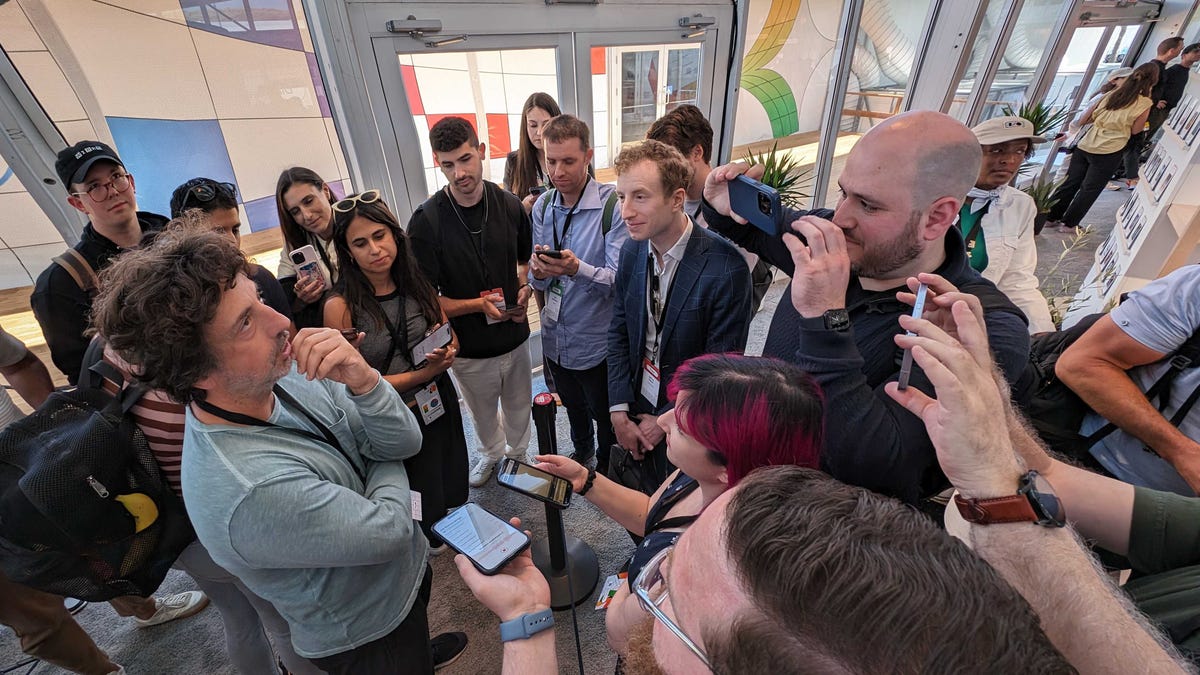
Most people will remember Sergey Brin for his iconic (and courageous) demo of Google Glass during the company’s I/O developer conference in 2012. 12 years later, the Google co-founder is back at I/O, but to talk about other things… sort of.
Following the opening day keynote, in a rather intimate Q&A session with members of the press, Brin shared his thoughts on Project Astra, Gemini Pro 1.5, and his number one use case with AI.
Project Astra, Google’s multimodal vision of “intelligent systems that show reasoning, planning, and memory,” was arguably the most ambitious AI announcement during the day’s two-hour keynote. The naming, much like Project Starline, says it all. Fittingly, the conversational tech was demoed with the camera app on a phone and a pair of smart glasses.
“It’s funny because it’s like the perfect hardware,” Brin responded when asked about Project Astra and how its potential wearable form factor compares to the now decade-old Google Glass. “It’s like the killer app now, 10 years later. (I just wish I) had timed that a bit better,” the Google co-founder added.
While the rise and fall of Google Glass is a story in and of itself, the vision of the product has made a dramatic comeback in recent years thanks to AI and the pursuit of finding the best hardware to suit it — whether that be glasses, lapel pins, or orange squares. Brin’s preference? Something that’s hands-free, wearable, and not a phone.
The Meta Ray-Ban smart glasses feature multimodal AI capabilties for image-based quieries.
Kerry Wan/ZDNET
Beyond the hardware, what really excites Brin — and was the primary reason for his return to Google after retiring in 2019 — is AI. Since rejoining the company in 2023, as reported by The Wall Street Journal, Brin has been integral in developing Google AI products like Gemini, which continues to expand as the general model backbone of various Google devices and services.
At I/O this year, Google unveiled an updated Gemini Pro 1.5 model, capable of being fed two million tokens (up from one million) in order to hold longer conversations and process larger-sized documents. The most impressive part, to Brin, is the generalizability of the AI model, from being able to pull summaries from multiple Gmail messages to coding, the co-founder’s favorite AI use case.
“Being a computer scientist, I want to a part of that (AI),” said Brin. “I can’t imagine a better time to be a computer scientist than now.”










